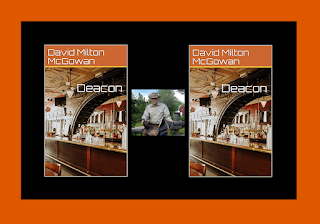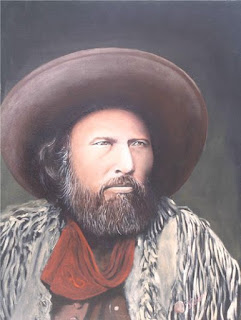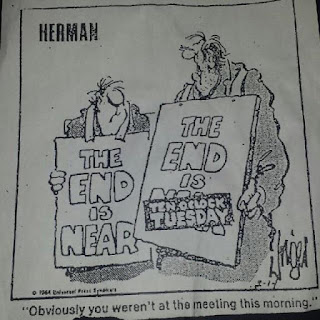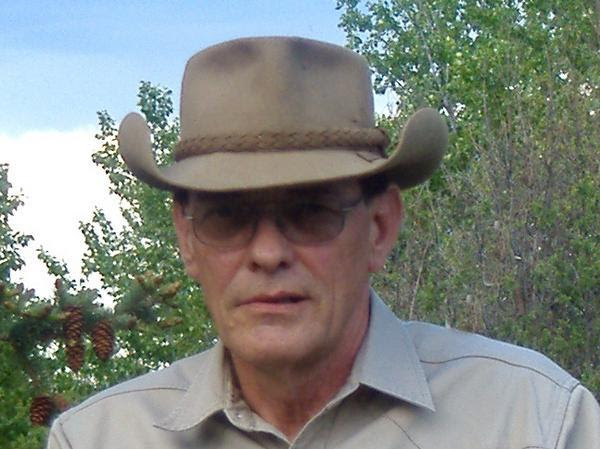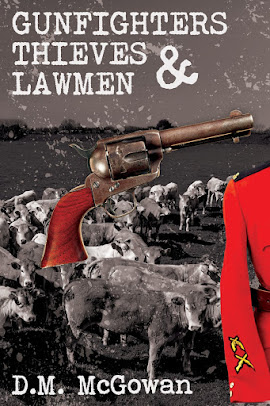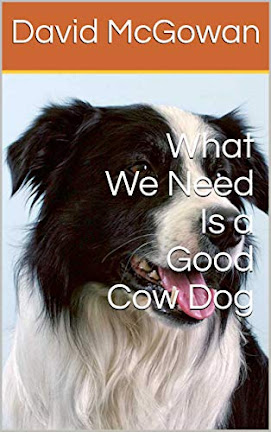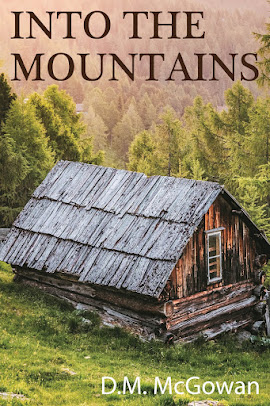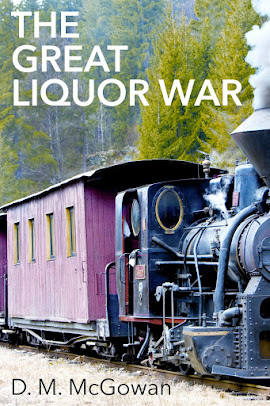Remembrance Day has rolled
around once again and, as I have done in previous years, I’m posting my Battle
of Britain story. However, this time Deacon has a new image since he is the
lead in an anthology I published this year (Kindle only). I’m also including
one of the rhymes that appears in the anthology, “Native Sons in WWI” which was
prompted by a story Francis Beaton Jr. told of his experience.
Enjoy.
Deacon
Copyright © 2019 David M.
McGowan
All rights reserved.
No part of this story may be reproduced or transmitted in any form
or by any means, graphic, electronic, or mechanical, including photocopying,
recording, taping, or by any information storage retrieval system, without the permission, in
writing, of the author.
The following
story is a work of fiction. Any similarity between this storiy and any
historical recording of events is accidental and highly unlikely. Any
similarity between the characters depicted and any actual people, either living
or dead, is accidental, highly unlikely and very flattering.
1940
About
half of this story is as it was related to me by the main character. On several
occasions he gave me permission to use the story but I still changed his name.
The nickname, ‘Deacon’ I retained for obvious reasons.
He passed on
several years ago but ‘Deac’ was a very good friend with whom I loaded and
unloaded many cartridges of a variety of calibers. I also had the pleasure of
hearing his guitar behind my vocals on several occasions and playing both bass
and rhythm guitar behind his excellent vocals.
I’ve
changed a few things but those who knew him will recognize the story and the
man it portrays.
The
Battle of Britain having been decided in October, 1940 ‘Deac’ returned to Canada in ’42
and taught fighter pilots for the last few years of WWII. Following the war he
did not stay in the air and came to regret it. In the early seventies he saw an
article about the “Great Lakes” biplane being
re-licensed and made available to the public once again. He managed to qualify
for a private pilot’s license and to solo in a “Great
Lakes” before his death.
The
fighter aircraft from Britain
were most often the Hawker Hurricane and the Supermarine Spitfire. The
adversary they most often encountered was the Messerschmitt Bf 109 usually
referred to by Allied pilots as an Me 109.
Deacon
By
D.M. McGowan
Before men started shooting at him with 7.92 mm bullets from their
Bf 109s Harry Burnside had been a singer. He stood in front of fifteen, twenty
and sometimes thirty-man orchestras and sang the Dorsey, Kenton, or Ellington
songs or whatever else the crowd in front and the band behind wanted to hear.
He had worked his magic in Detroit,
Chicago, Pittsburgh, Cincinnati and his home
town, Windsor, Ontario. Harry thought it was only right to
use his natural talent, his voice, to make at least part of his living. It had
also been a great way to start a young life and learn the music and
entertainment business from professionals. It was only incidental that it was
the perfect place for a teenager to learn from the masters how to party.
Sometimes horrendous events are necessary to save a young man from
himself. In Harry’s case it was the war in Europe
that brought a young man’s party life to a close, at least temporarily. Of
course it also accelerated the danger in that life.
Not that Harry rushed to a recruiting station in the autumn of 1939.
Some of his young friends and even the older men he worked with certainly did.
It was one of the older musicians who convinced him signing up for service was
the thing to do.
“Folks ‘r sayin’ this here war is gonna be over in no time,” Marvin,
a trumpet player said. “They is sorely mistaken. I bin readin’ up on these here
Germans an’ they got ‘em an army. British ain’t got nothin’ an’ they’s gonna
get whacked.”
“Are you suggesting we Canadian boys should go over there and get
whacked, as you say, right along with them?” Harry asked.
“First off, I ain’t a Canuk, I’m a southern boy,” Marvin said.
“Second, when things get tough they’ll be comin’ for us anyway. Might as well
sign up for somethin’ you want t’ do instead o’ somethin’ the government thinks
you’d be good at.”
“You’re country isn’t in it,” Harry pointed out.
“Not yet,” Marvin responded. “Now, you’ve been workin’ here an’
there along with singin’. I don’t got no income but my trumpet. A man signs up
he’ll get three squares a day an’ a cot.”
Harry took a drink of his whiskey and water and cast his gaze around
the musicians gathered in the late night or, to those who were not musicians,
early morning booze hall.
“You know, Marv, I’ve always wanted to learn to fly a plane,” Harry
said.
Marvin clapped him on the shoulder. “Now you’re talkin’, boy. Royal
Canadian Air Force. What say we go sign up first thing in the mornin’?”
Harry looked at his watch. “Might I suggest early this afternoon? I
might be awake by then.”
Somewhere between Windsor,
Ontario and Ashford, Kent,
Harry lost touch with Marvin, but not with other men from the southern United States.
Almost half the men stationed on the airfield were Americans who had traveled
north to Canada
and signed on with the RCAF.
Though they wore Canadian uniforms and insignia they were
technically in Royal Air Force squadrons. The squadron commander was a British
major, and Harry’s wing commander a Canadian Lieutenant or “Leftenant” as the
British officers insisted. The other two Canadian pilots presently assigned to
their understaffed wing were actually from Arkansas. In the two man barracks enjoyed by
RAF pilots one of those southerners, Otis Tyler was Harry’s bunk mate.
“Ah hear we all getting’ new radios next month,” Otis said as the
two pilots walked down the hall one early morning in late August.
Harry shrugged with one shoulder as he held the door open with the
other hand and let Otis out into the humid dawn. “Be fine if they’re better
than the T9. But if they aren’t, well, I’m starting to get used to being up
there all by myself.”
“Mighty handy fur tellin’ somebody where you’s ‘bout t’ crash,” Otis
noted.
“As long as they work and you’re no more than a mile away” Harry
countered. “The T9 is good for about that far. You’re probably better off
depending on a farmer seeing you go down.”
Otis chuckled.
As they approached the mess hall their wing leader, Lieutenant Mapes
reached the door and opened it for them.
“Good news chaps,” the officer said as the two non-coms passed
through the door he held open for them. “Just spoke with the CO. We stand down
today.”
“Excellent!” Harry said. “Now I can have some real breakfast and
more than one cup of coffee.”
“Yuh all worry too much ‘bout that coffee thing,” Otis said.
“Quite good policy,” the Lieutenant said.
“Nothin’ to it,” Otis responded. “Yuh all just take an empty cola
bottle up with yuh.”
“I say, old boy, a bit hard to pee in a bottle when one is trying to
avoid the 109 that is glued to your tail. Not to mention that bottle flying
around loose in the cockpit.”
“Yuh all make sure yuh strap it in so it don’ fly ‘round,” Otis
said. “As fur takin’ a leak when Gerry’s on muh tail an fillin’ my magic carpet
full o’ holes, why ‘bout then I don’ have no trouble passin’ water.”
Lieutenant Mapes laughed. Harry grinned and shook his head in
resignation.
“Since we aren’t going up to be shot at, perhaps we could talk about
something else?” Harry suggested.
“Our Calm Colonial boy is right once again,” Mapes said. “We have a
day to repair gear.”
“And talk about new radios,” Harry suggested.
“There isn’t anything to talk about,” Mapes said. “I’ve heard the
same rumors as you men. However, I haven’t heard anything from the Old Man and
I haven’t seen any radios. Other than the 9 in my Spit that quit working
entirely the last time I was up.”
Later that day, Otis asked Harry to join him and some other airmen
to study and review the local ladies and pubs. However, Harry had grown out of
the need to wake up with a pounding hangover. He had already had years of
partying. Besides, bringing in bullet scarred Spitfires had made the drinking
bouts seem very unimportant. His mates, often a year younger or more, still
asked him even though he seldom went with them.
An hour after the other pilots had gone into town Harry walked off
the base and caught a ride into Ashford. He walked the streets for awhile
admiring the buildings and the history.
Occasionally a Junkers 88 would fly across the English
Channel very close to the water, start a steep climb to miss the
Cliffs of Dover and release a bomb mounted to its belly at the end of that
climb. The speed of the bomber combined with the force of the climb would cast
that bomb for a very long way and it would land wherever the laws of physics,
geology, and aerodynamics might decide and no man could say. On that beautiful
day in late August, 1940 a building Harry had admired moments before and at
that moment was no more than a block and a half away, disappeared in a cloud of
dust, smoke and noise.
Harry Burnside had been flying over Britain for three months. He had
been as far as France
on a half dozen occasions. He had no idea how many dog fights he had been in
but had shot down three Me 109s and crash landed twice. He had landed
successfully in Spitfires that probably should have quit flying several minutes
before. He had been scared out of his mind on those occasions but had worked
his way through it.
That day, on the streets of Ashford, after the completely random
bombing of a very historic building, Harry Burnside could not control the
choking fear.
Looking around he saw the sign for a pub, the Anvil and Hammer. He
stepped through the door and saw ale glasses stacked on the bar. He turned the
pint glass over and said to the barman, “Whiskey.”
The barman could see by the look on Harry’s face that discussion
might be dangerous. He poured a shot into the ale glass.
“Fill it,” Harry ordered.
The inn keeper complied.
Harry downed the whiskey and noticed only in passing that it was
smooth, a single malt.
He put the glass back down on the
bar and said, “Again.”
Once it was full, he downed the
second glass.
He remembered opening the door to
his barrack, but very little after that.
Much later Otis Tyler returned to
find his bunk mate, the man who usually refused to go drinking with his mates,
passed out on the floor.
“Burnside,” he said, as he picked
Harry up and placed him on the bunk, “yuh all just like them travelin’
preachers back t’ home; preachin’ hell fire an’ brimstone then next thing yuh
got some farmer’s daughter out behind the tent.”
And that is how Sergeant Pilot
Harold Burnside became known as “Deacon.”
Native Sons in World War One
By D.M. McGowan and K.L.
McGowan
© 2019
Seventeen native boys left
the Upper Peace
The only land they’d
known, all in their teens.
They’d all grown up wild
out among the trees.
Knew where to find pelts,
beaver ponds or streams.
They hunted for their
supper, trap or single shot
And only their mothers
gave safety a fleeting thought
After two hundred years of
Scott and Fleur de Lis
They knew some other talk,
sometimes two or three,
English, French and German
were spoken in the land,
And whatever tongue was
spoken by their particular band
Some of them could read
and write more than just their name
But the army didn’t care,
green privates all the same
An amazing great adventure
for young trapper men
From freedom of the wild
to a Canadian Army pen
Across the land in trains,
something never seen.
Mistreated by a Sergeant,
but still bright and keen.
Dropped off in camps and
marched around a square
“Dig some dirt from here
and put it over there.”
On the trains again east
to Canada’s Maritimes
March down to the docks in
perfect double lines
Then up a gangplank to a
big steel canoe
Then told to put their kit
where you couldn’t fit a shoe
A dozen ships in convoy
from the Bedford shore
But count on German U
boats sinking two or more.
More camp time in England,
weeks without the sun
Then finally sent to
France to show them how it’s done
Trenches that collapse
from rains that never end
Bodies on the wire or
sprawled out in no man’s land.
All caked in mud, “Are
they ours? Are they theirs?”
Days and weeks of boredom,
then terror and despair.
Vimy Ridge, the Somme or
maybe Regina Trench
Maybe English on the left
other times the French
High Wood or Kitchener’s,
Avion as well
With the Aussies at
Gallipoli, some lived to tell
Passchendaele, Arras,
knowing each the end
If not for the war, surely
for the men
Métis, Cree and Dane a total of Seventeen
On a great adventure,
young, naive and keen
But the Great War wasn’t a
great place to learn
For seventeen go but only
two returned.
For more short stories and novels visit
https://www.amazon.com/D.-M.-McGowan/e/B004V9WZVI
From that site you can enter any delivery address
(including email for digital version) and any deliver date you desire (such as
December 23rd)








